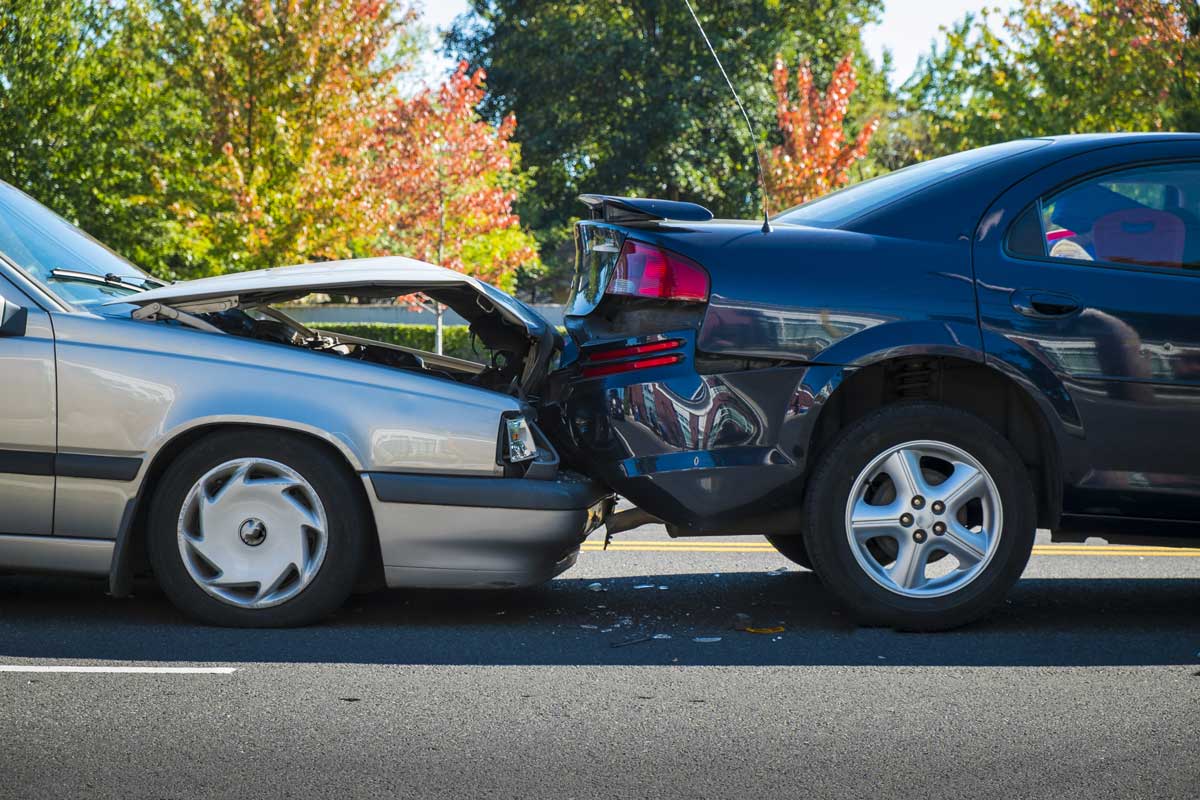
Is Indiana a no-fault state for car accidents?
No, Indiana is not a no-fault state for car accidents. If another party is determined to be at fault, they may be held liable for your damages. Since Indiana’s laws surrounding car accidents can be complex, it’s crucial to consult with a car accident lawyer if you’re involved in an auto accident. An experienced attorney will be able to explain the specifics of your case and work with you to identify who may be financially responsible for any damages. Contact Team Green Law to get more information.
What does no-fault mean?
No-fault insurance is a type of car insurance—which is not available in Indiana—that enables the injured party to receive compensation without needing to prove that another person or entity was at fault for the accident. Under no-fault insurance, your damages could still be covered even if you are responsible for the crash. Additionally, no-fault insurance restricts the ability to sue another party for damages.
Who determines fault in an accident in Indiana?
In Indiana, fault in a car accident is typically determined by the police who investigate the scene. They assess the situation and interview all parties involved to identify which driver was negligent. For more details, speak with a personal injury lawyer at Team Green Law today.
Negligence often entails violating traffic regulations or driving carelessly, but it can also occur if a motorist neglects fundamental safety measures, like checking blind spots prior to switching lanes. Should the investigating officer conclude that a driver was negligent, they will attribute fault to that driver. Consequently, the insurance provider of the driver at fault might be liable for compensating damages or medical costs arising from the collision. In cases where both drivers are found to be negligent, fault may be shared between them.
It’s crucial to keep in mind that, in the end, the jury decides who is at fault in an accident. If you have any questions or concerns about an accident investigation, it’s a good idea to consult with a car accident lawyer. Their guidance can help you understand the compensation you may be entitled to.
Who is usually at fault in a car crash?
In a car accident, the driver who is found to be primarily responsible for the crash during the police investigation is typically considered at fault; however, there are scenarios where multiple parties may share responsibility. For example, if a poorly maintained vehicle caused the collision, both the driver and the vehicle owner could be held liable. Additionally, if a third party company or individual is found to have contributed to the accident, they may also be considered at fault. For instance, a vehicle parts manufacturer could be held accountable if it issued faulty breaks, which then caused a car accident. Ultimately, it is up to a jury to decide who is liable for any damages resulting from the accident. For further details, feel free to contact us at Team Green Law.
It’s important to know that leaving the scene of an accident in Indiana carries penalties. Essentially, there is minimal difference between a hit-and-run and leaving the scene. If you find yourself in an accident, you are required to stop your vehicle immediately and share your name, address, phone number, and registration details with the other driver. Neglecting to do so may lead to criminal charges for leaving the scene. Moreover, if you are involved in an accident and have reason to believe that someone may have been injured or killed, you are obligated to stop and provide assistance.
What happens in Indiana if someone else is driving my car and gets in an accident?
In Indiana, if someone else is driving your car and causes an accident, they would generally be held liable for any damages. However, assuming the driver had permission to use your vehicle, your insurance company will typically be responsible for covering the damages.
To safeguard yourself from potential lawsuits or financial losses, it’s best to maintain adequate insurance on your vehicle. Additionally, it’s highly recommended to carry uninsured/under-insured motorist coverage, especially for instances where your vehicle is involved in an accident where neither you nor the permissive driver is at fault. Remember, insurance coverage usually follows the vehicle, so it’s best to ensure your vehicle is fully covered for all possible damages or losses. To learn more about how to protect yourself and your vehicle, contact a car accident lawyer at Team Green Law.
Team Green is a different kind of law firm. We’re not going to make you promises we can’t deliver on. This is our promise to you: we will guide you through the legal process, working with you through straight talk and personal attention, and we’ll work for you with smart, aggressive representation to get the settlement or judgment you deserve. Other lawyers show their case results on their websites, but not only does that imply results they can’t guarantee — it’s against the Indiana Rules of Professional Conduct (Rule 7.1 [2] (2)). But you should know that the results of one successful case does not tell us what will happen with you. We will work with you to set realistic expectations of the timeline and money that could be recovered for your unique case.





